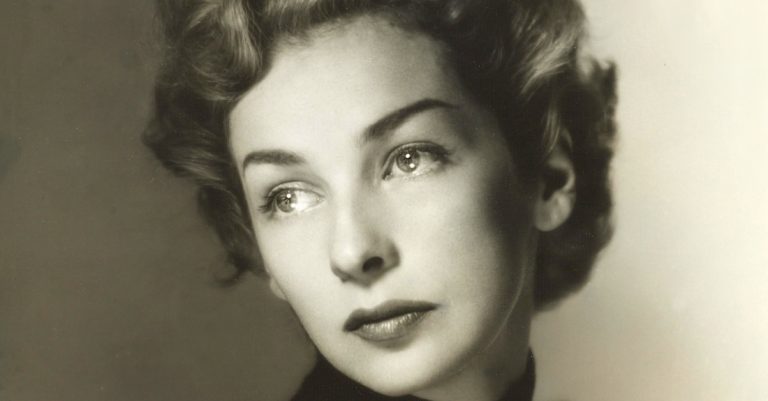

A Costa Rican-Chilean actress who transformed American theater while championing civil rights and women’s equality alongside Leonard Bernstein
New York, N.Y. – Felicia Montealegre Bernstein (née Cohn) (1922-1978, age 56) was an actor and social activist whose career ranged from major television network appearances to roles in theaters (both on Broadway and off), opera houses, and concert halls throughout the world.
Her story transcends the traditional narrative of being simply “the maestro’s wife,” revealing a complex woman who forged her own artistic path while navigating the challenges of marriage to one of America’s most celebrated composers.
Early Life and Journey to New York

Born in San José, Costa Rica, in 1922 and raised in Santiago, Chile, Felicia immigrated to New York City in 1944 and enrolled in drama school, adopting her mother’s maiden name for the stage.
Her decision to pursue acting in New York represented a bold leap for a young Latin American woman in the 1940s, demonstrating the determination that would characterize her entire life.
The cultural transition from South America to Manhattan required tremendous courage and adaptability. Felicia arrived in a city where opportunities for women, particularly women of Latin American heritage, remained limited in the entertainment industry. Yet she persevered, studying her craft and building connections within New York’s vibrant theatrical community.
A Fateful Meeting
Leonard Bernstein and Felicia Montealegre met in 1947 at a party given by Claudio Arrau, one day before Montealegre’s 24th birthday. Bernstein, then 28, had just played the Brahms D minor concerto with Arrau. This encounter would prove transformative for both artists, though their path to marriage proved anything but conventional.
After their first engagement to be married was broken off, she had a relationship with actor Richard Hart until his death on January 2, 1951.
The complexity of their early relationship reflected the challenging
dynamics they would navigate throughout their marriage, balancing
personal desires with public expectations and professional demands.
Building an Artistic Legacy
Felicia Montealegre was a stunningly beautiful Chilean stage and television actress making her living in New York. However, reducing her to physical appearance alone overlooks her substantial contributions to American theater and television during the Golden Age of both mediums.
Her performances spanned multiple platforms, from Broadway stages to early television productions that helped define the medium’s dramatic potential. She worked alongside emerging talents who would become household names, contributing to the cultural landscape that made New York the undisputed center of American entertainment.
She had an acting career and was an independent, headstrong person, yet also married a public figure and started a family in the infamous postwar “utopia” of the 1950s. This balancing act between personal ambition and traditional expectations created tensions that many women of her generation faced, though few navigated them so publicly.
Marriage and Musical Partnership

She and Bernstein married on September 9, 1951, beginning a union that would produce three children and last until her death in 1978.
Their relationship represented more than a traditional marriage; it evolved into an artistic collaboration that influenced both their careers.
Felicia became deeply involved in Leonard’s musical world while maintaining her own professional identity.
She understood the demands of his career, often serving as both supporter and creative sounding board for his compositions and conducting endeavors.
Their Manhattan apartment became a gathering place for artists, intellectuals, and political activists who shaped mid-century American culture.
Social Activism and Political Engagement
She was a powerful voice in political struggles that included working women’s rights, anti-war movements and the struggle for racial equality. Felicia’s activism extended far beyond her husband’s fame, establishing her as an independent force for social justice.
During the turbulent 1960s and 1970s, she participated in civil rights demonstrations, anti-war protests, and women’s liberation movements. Her visibility as the wife of a prominent cultural figure amplified her advocacy, but her commitment to these causes stemmed from personal conviction rather than mere celebrity obligation.
Her involvement in these movements often placed the Bernstein family in controversial positions, particularly during the Vietnam War era when anti-war sentiment faced significant opposition. Yet Felicia remained undeterred, using her platform to advocate for causes she believed would create a more just society.
Felicia Montealegre Bernstein embodied the complexity of mid-century American women who balanced artistic ambition with traditional expectations. Born in Costa Rica and raised in Chile, she immigrated to New York in 1944 to pursue acting, eventually marrying composer Leonard Bernstein in 1951. Beyond her successful theater and television career, she became a prominent social activist, championing civil rights, women’s equality, and anti-war movements until her death in 1978.